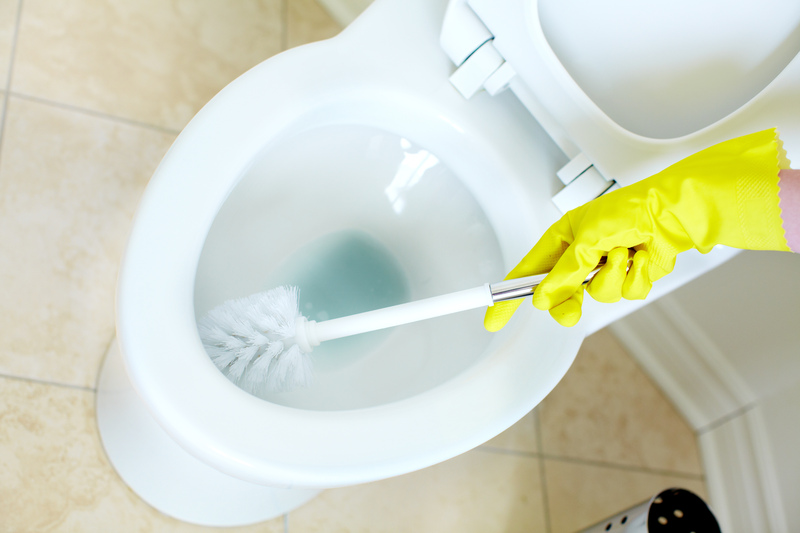Wave Pet Odors Goodbye and Say Hello to Freshness
Posted on 27/08/2025
Wave Pet Odors Goodbye and Say Hello to Freshness: Your Ultimate Guide
As loving pet owners, we know that pets bring joy, companionship, and a sprinkle of chaos into our lives. But along with wagging tails and happy purrs, our furry companions sometimes leave behind less desirable souvenirs--persistent odors. If you're looking to wave pet odors goodbye and say hello to freshness, this article is your comprehensive guide. We'll cover proven tips, products, and habits to banish unpleasant smells and keep your home welcoming and fresh.
Understanding the Origins of Pet Odors
Before you can conquer pet odors, it's crucial to understand where they come from. Not all pet smells are the same, and tackling each type requires a targeted approach.
- Urine and Fecal Accidents: Puppies and kittens are notorious for accidents, but even older pets may have mishaps due to age, illness, or behavior. These odors are not only unpleasant but stubborn and potentially damaging to your home.
- Pet Dander: Microscopic pieces of skin (dander) contain proteins that may cause odor and allergic reactions. Regular shedding and grooming can leave dander on fabrics, carpets, and air filters.
- Natural Pet Body Odor: Dogs, cats, rabbits, and even birds have natural body odors. Some breeds, particularly dogs with oily coats, have more noticeable aromas.
- Bedding and Litter Boxes: Dirty bedding or rarely changed litter boxes are major culprits, concentrating and amplifying pet smells.

Why Pet Odors Linger in Your Home
It might seem like no matter how much you clean, pet smells stubbornly return. Here's why:
- Porous Surfaces: Carpets, rugs, sofas, and bedding absorb odors like sponges. Once inside, smells can be tough to remove without deep cleaning.
- Poor Ventilation: Lack of fresh air circulation allows odors to concentrate and linger.
- Hidden Messes: Sometimes, accidents occur in hidden spots--behind furniture, under cushions, or other less-visible places.
Strategies to Wave Pet Smells Goodbye
Ready to eliminate pet odors and reclaim your home's freshness? Here's what you need to do:
Deep Cleaning: The First Step to Freshness
Surface cleaning isn't enough if you're looking to wave pet odors goodbye. Here's a targeted cleaning routine:
- Vacuum Frequently: Use a high-quality vacuum cleaner with a HEPA filter to capture dander, pet hair, and dust. Vacuum carpets, rugs, sofas, and pet beds at least twice a week.
- Steam Clean Carpets and Upholstery: For deep-seated smells, nothing beats a steam cleaner. Use pet-safe cleaning solutions to extract stubborn odors.
- Wash Pet Bedding and Soft Furnishings: Launder all pet bedding, cushion covers, and throws in hot water weekly. Add a cup of white vinegar to the rinse cycle to help neutralize odors.
- Clean Litter Boxes and Cages Regularly: Litter boxes should be scooped daily and fully cleaned weekly. Wash cages, crates, and tanks according to your pet's needs.
- Mop Hard Floors: Enzyme-based cleaners break down organic stains and odors on tile, vinyl, or wood flooring.
The Power of Enzyme Cleaners
Enzyme cleaners are the secret weapon for millions of pet owners who want to say hello to freshness. Unlike conventional cleaners that merely mask odors, enzyme-based solutions break down the molecules in pet urine, feces, vomit, and other organic substances, effectively eliminating the source of odor.
Benefits of Enzyme Cleaners:
- Penetrate deeply into fabrics and carpets
- Completely neutralize odor at the source
- Pet-safe and environmentally friendly
- Discourage pets from repeating accidents in the same spot
Air Freshening Techniques for a Pet-Friendly Home
Once you've cleaned, focus on boosting your home's air quality to ensure lasting freshness.
Increase Ventilation
Open windows and doors whenever possible to allow fresh air to circulate. Consider installing exhaust fans in areas where pets spend the most time.
Use Air Purifiers
HEPA air purifiers trap pet dander, dust, and microscopic odor particles. Pick a unit rated for the square footage of your main living areas for optimal results.
Deodorizing Sprays and Powders
Pet-safe deodorizing sprays and powders neutralize odor on contact and can be used on carpets, upholstery, pet beds, and even inside litter boxes. Look for natural, non-toxic options infused with essential oils such as lavender, lemongrass, or cedarwood for a pleasant lingering aroma.
Naturally Absorb Odors with Household Items
Some household items are surprisingly effective at capturing pet odors:
- Baking Soda: Sprinkle generously on carpets or in pet beds, let sit for 15-30 minutes, and vacuum away.
- Activated Charcoal: Place bags or bowls of activated charcoal in rooms or near litter boxes to absorb smells.
- White Vinegar: Wipe down surfaces with diluted vinegar to neutralize lingering odors.
Banish Pet Odors from Specific Areas
How to Remove Pet Odors from Carpets
- Blot encrusted urine spots with a clean, absorbent towel as soon as you spot them.
- Apply enzyme cleaner liberally, allowing it to soak down to the carpet padding.
- Cover the area with a damp towel and let it sit for several hours, or as directed.
- Vacuum after drying for a completely fresh finish.
Refreshing Upholstery and Furniture
- Remove cushion covers (if possible) and wash them with odor-neutralizing detergent.
- Use a steam cleaner for deep-seated odors in foam or stuffing.
- Finish with a fabric-safe deodorizing spray for maximum freshness.
Keeping Litter Boxes and Bedding Odor-Free
- Scoop solid waste daily and replace litter as needed.
- Disinfect the box with hot water and unscented soap every week.
- Replace pet bedding with machine-washable options for easier maintenance.
- Add baking soda to litter to help control odor.
Healthy Habits for Long-Term Freshness
Wave pet odors goodbye--permanently--by incorporating these everyday habits:
- Brush pets regularly to minimize shedding and dander buildup.
- Wipe paws after outdoor walks to keep dirt and mud out of the house.
- Bathe pets as needed (using species-appropriate shampoo) or schedule professional grooming.
- Check for dental health; mouth odor can contribute to overall pet smell.
- Keep cages, tanks, and crates consistently clean with scheduled deep cleans.
Choosing the Best Products to Wave Pet Odors Goodbye
The market is flooded with odor-fighting products, but not all are created equally. Here's how to choose solutions that really help you say hello to freshness:
- Look for bio-enzymatic formulas for stains and deep-seated odors.
- Select natural and non-toxic deodorizing sprays to ensure your pet's safety.
- Invest in a robust air purifier equipped with a HEPA filter.
- Choose odor-eating litter for cats, and washable liners for small animal cages.
Always read product labels to ensure they're suitable for your species and safe for all your family members, including children and other animals.
Top Tips to Prevent Pet Odors Before They Start
- Establish a consistent cleaning schedule for all pet zones.
- Choose stain-resistant materials for pet beds, carpets, and upholstery when possible.
- Train pets to use designated potty areas, and reward good behavior.
- Provide plenty of outdoor exercise so pets are less likely to have accidents indoors.
- Feed pets high-quality food to reduce the odor intensity of waste.
When to Seek Professional Help
If you've tried all these methods and lingering smells persist, it may be time to call in professionals. Deep cleaning services use industrial equipment and advanced solutions to treat even the most stubborn pet odors, especially those embedded in carpets, subfloors, or HVAC systems.

Frequently Asked Questions About Pet Odors
Are air fresheners safe to use around pets?
Many commercial air fresheners contain chemicals that can harm animals. Always opt for pet-safe formulations or natural odor absorbers like baking soda and activated charcoal.
Why do pet odors come back even after cleaning?
Odors can penetrate sub-surfaces, like carpet pads or wooden floors. Enzyme cleaners are more effective at eradicating the source and should be used for persistent smells.
How often should I bathe my pet?
The ideal frequency depends on the species, breed, and underlying health conditions. For most dogs, monthly baths are sufficient, while cats typically keep themselves clean.
Can changing my pet's diet help with odors?
Yes. Poor-quality food can contribute to excessive shedding, digestive issues, and stronger waste odors. Consult your veterinarian for dietary advice.
Wave Pet Odors Goodbye--And Enjoy Every Moment
Banish pet stains and smells from your life--with the right approach, you can wave pet odors goodbye and say hello to freshness every day. A clean, odor-free home means more time enjoying your pets' unique personalities and unconditional love, and less time worrying about unwanted aromas. With consistent cleaning, healthy habits, and the best products, both you and your pets can thrive in a fresher, happier home.
The bottom line? Don't let pet odors dictate your living space. Armed with knowledge and the best tools, you'll keep your house smelling fresh and inviting no matter how many paws cross the threshold!
Latest Posts
Streamline Your Style: Small Wardrobe Space-Saving Insights
Achieve a sparkling, mold-free bathroom with these simple steps
Unlock the Potential of Your Curtains with Proper Cleaning








